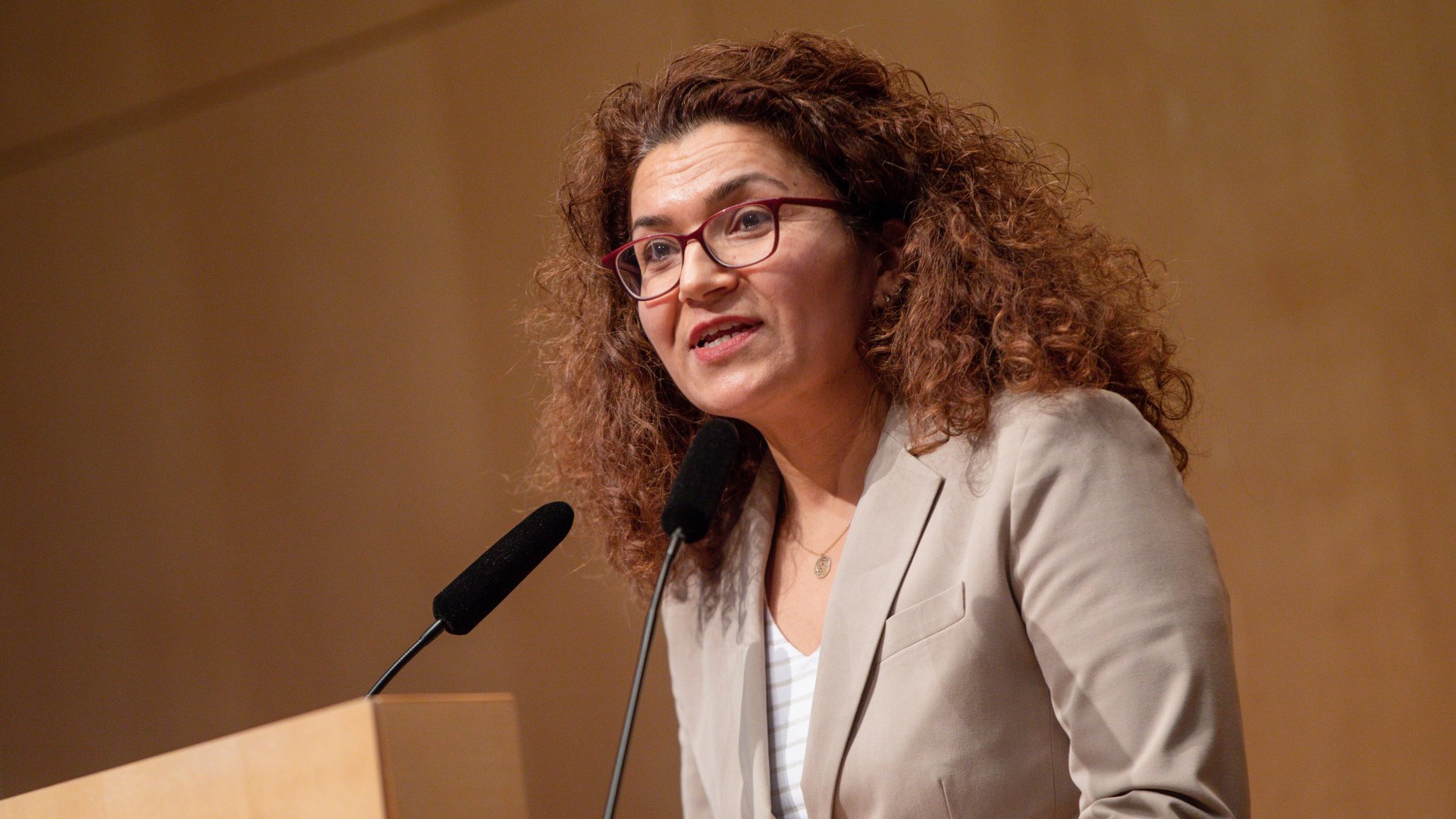“We need to talk about our successes"
Ayse Özbabacan, head of the City of Stuttgart’s Integration Policy Department, calls for pragmatic confidence. Much has been achieved over the past ten years. That gives her hope for the future.
At the time, I didn’t find Angela Merkel’s statement particularly controversial. “We can do it” – of course we can, I thought. In Stuttgart we knew that taking in so many refugees in a short period of time wouldn’t be easy. But we were well prepared.
We’d already been working on our structures in the preceding years. Back in 2014, we’d set up the Stuttgart Welcome Center, a service center for newly arrived migrants covering all aspects of life and work in Stuttgart. The goal was to make arriving in the new city easier. We also made it possible for the municipal language courses sto be attended by asylum seekers while their asylum application was still ongoing. That may sound insignificant, but it’s actually very important. Integration happens, above all, through language.
These accounts by Ayse Özbabacan are part of a series within our funding topic Immigration Society. In 2015, Angela Merkel famously declared, “We can do it!”—referring to the arrival and reception of hundreds of thousands of refugees who came to Germany within just a few months. Ten years later, we asked experts and partners from our projects: What have we achieved in terms of integration in Germany over the past decade?
From the very beginning it was also clear to us that we wouldn’t manage this without civil society. In 2015, there were six support groups with volunteers dedicated to helping refugees. By the end of 2016, that number had grown to 40 support groups with around 3,000 volunteers supporting about 10,000 refugees in all. Today, this level of commitment is still just as high.
But right from the start, part of the Stuttgart approach was to actively involve refugees and enable them to take responsibility for their own integration process. We wanted to encourage and empower them to contribute their skills and abilities for themselves and for society. We organized so-called refugee dialogues, went into the refugee shelters and, with the support of interpreters, asked very concrete questions: How are you experiencing your integration? What are you bringing with you? What contribution can you make to the shelter and society? This is how, for example, small sewing rooms were set up where refugees not only sewed for their fellow residents but also taught German neighbors how to sew. A Syrian lawyer wasn’t allowed to work here as a lawyer, but he spoke very good German and helped others to fill out forms. Many refugee associations were also founded – for example one set up by and for Afghan refugee women.
"Especially in today’s heated political climate it’s important to show that integration works – and benefits the economy and society."
Many of those who arrived in 2015 have since been naturalized. They’ve learned German – and some even Swabian. They’ve got jobs, often in sectors where skilled workers are in particularly short supply. They pay their taxes and social security contributions. And they’re also politically active – in political parties, on the city council’s international committee, in local politics.
Of course we made some mistakes as well. We should have given asylum seekers access to integration courses back then, just as we later did for Ukrainians. We should have facilitated labor market integration through the Jobturbo process. Even today, we still have many skilled workers from Ukraine who cannot work because there aren’t enough childcare places. As the government offices are overburdened, it sometimes takes too long to issue work permits. We can also do more in the field of vocational training and further education. And companies may need even more courage to hire people who don’t yet speak perfect German.
We should talk about these challenges. But we also need to talk more about our successes. Especially in today’s heated political climate it’s important to show that integration works – and benefits the economy and society. In 2015, Angela Merkel did not promise anything out of thin air. She called for calm, pragmatic confidence – and that’s an attitude we should maintain.

